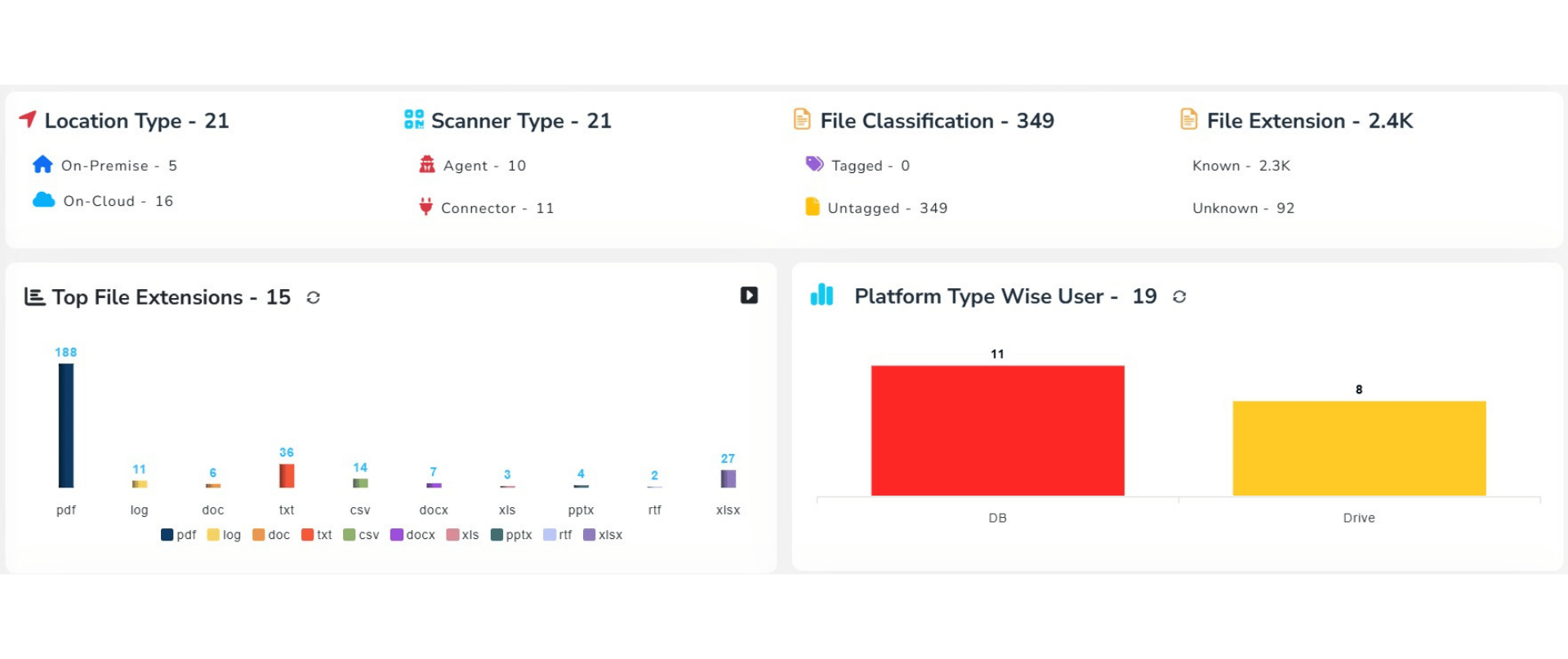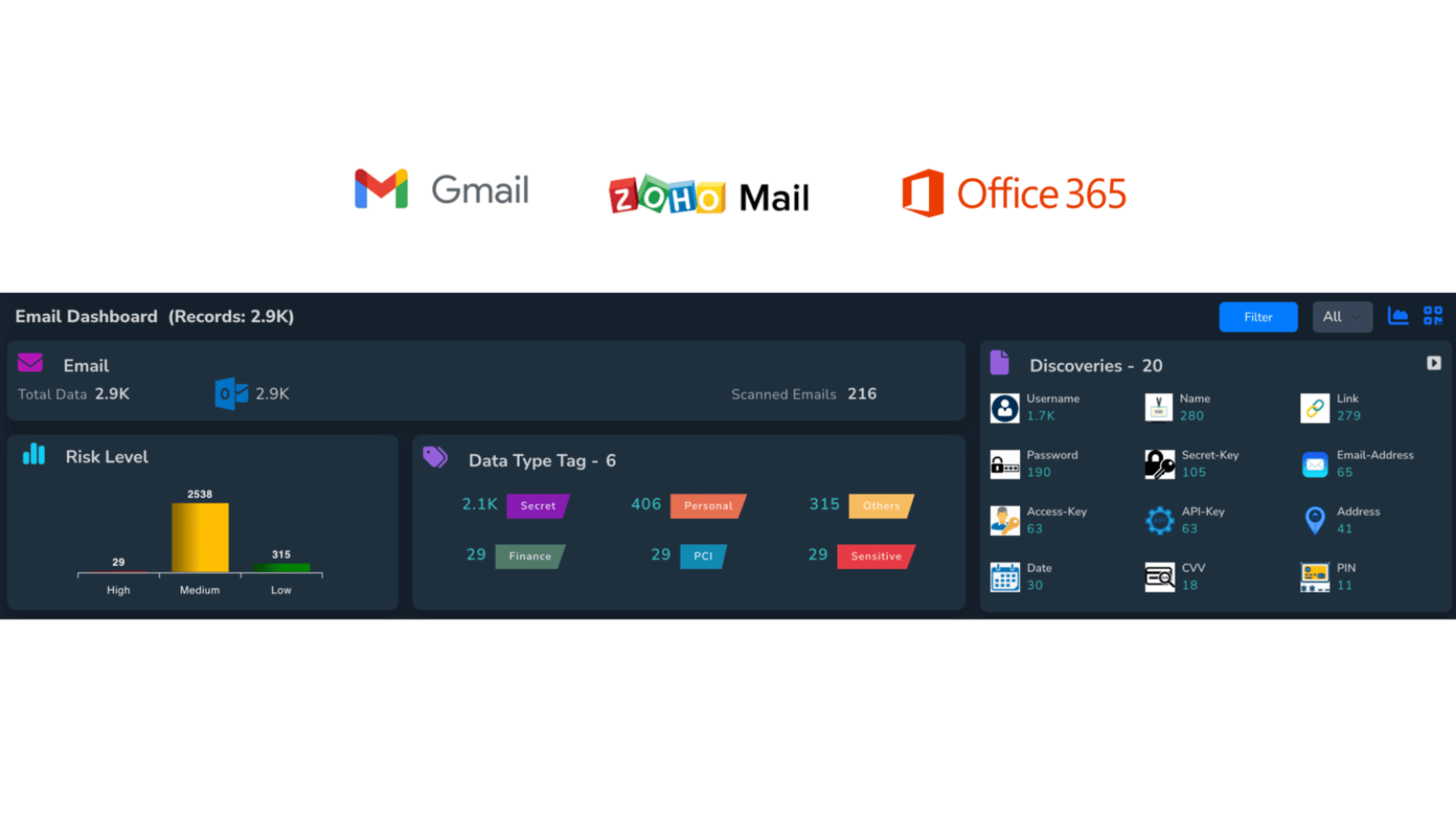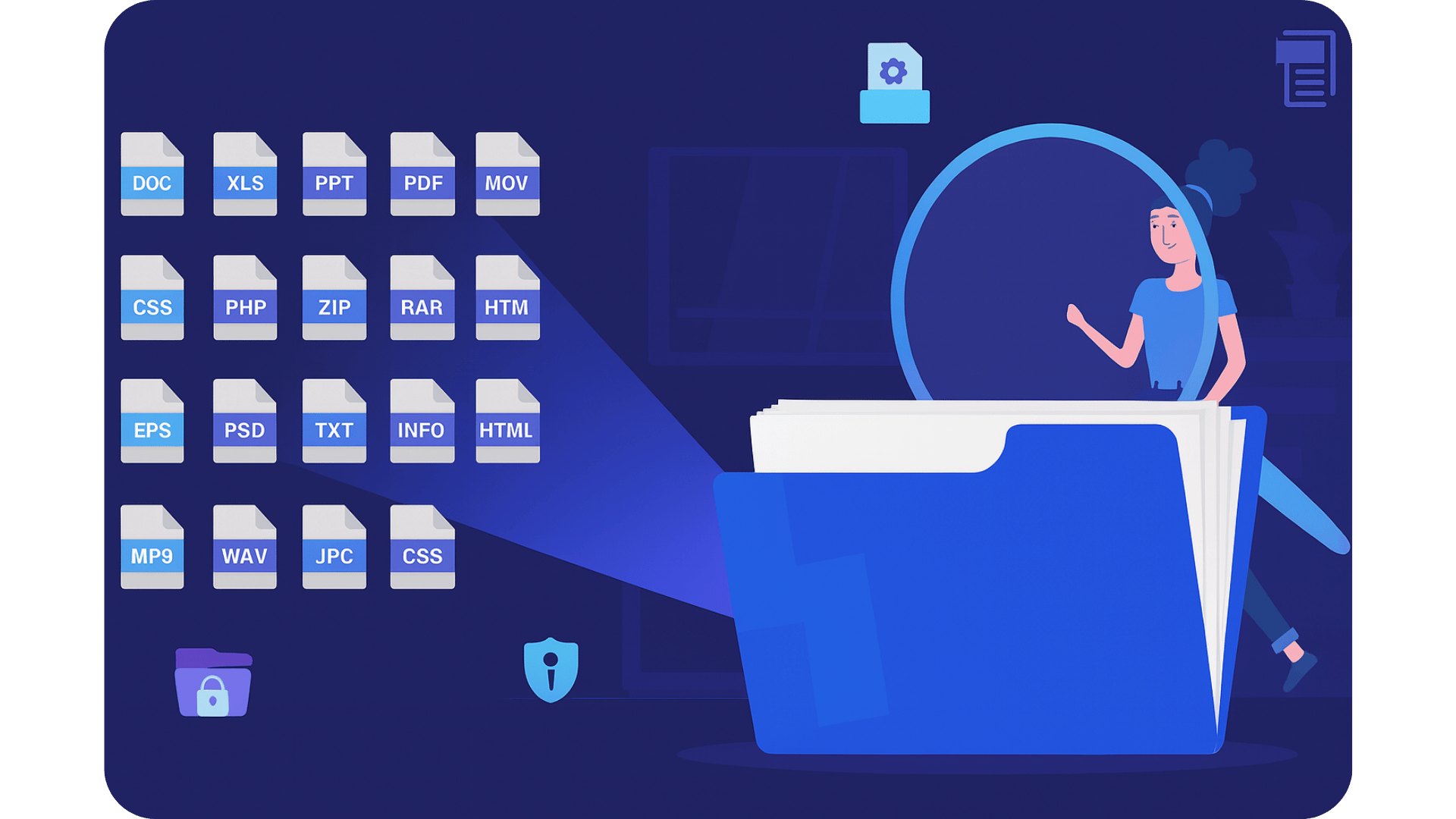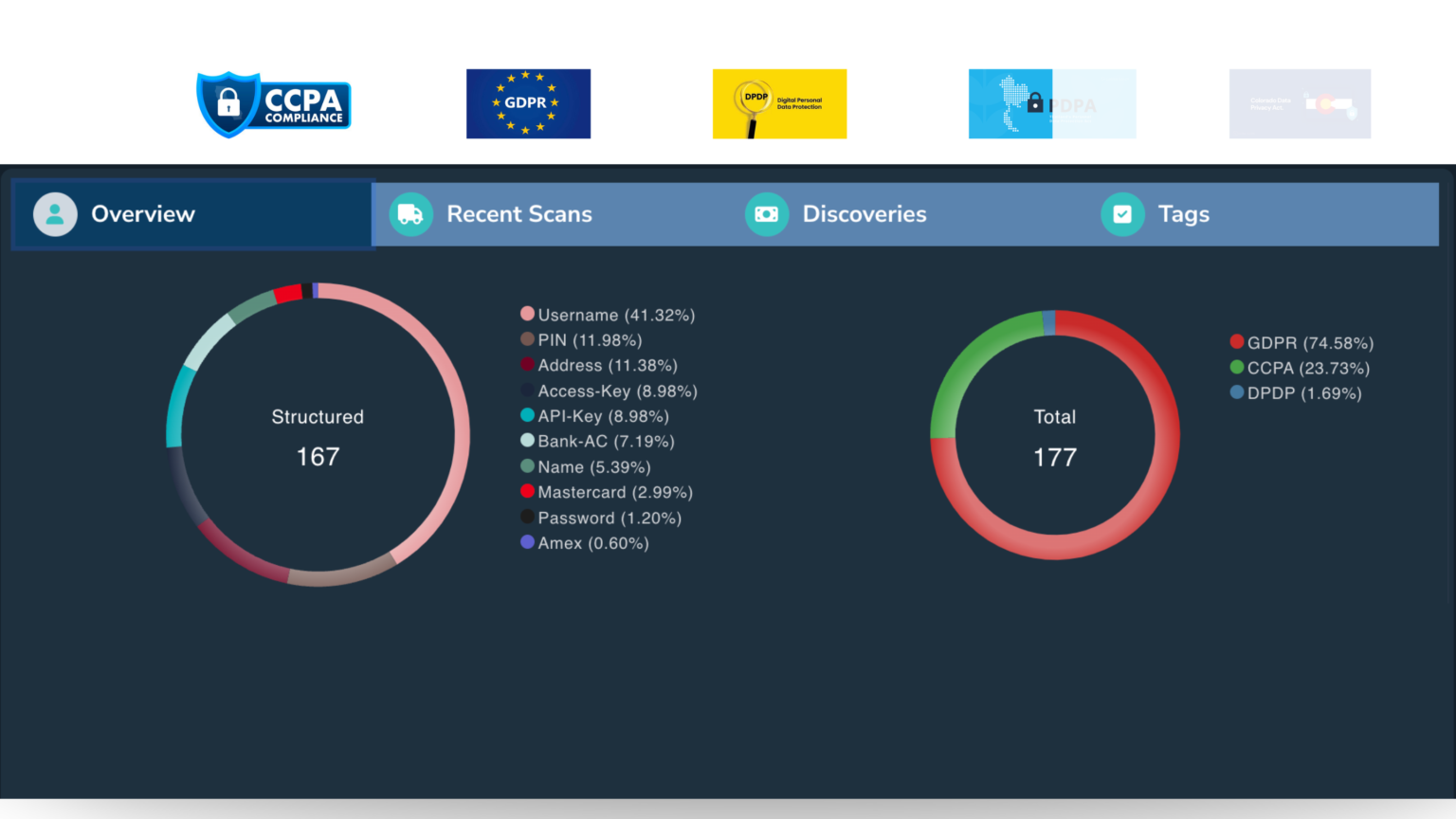Identifying and Uncovering Assets and Data
Discover your Hidden Assets
Discover and classify personal and sensitive data across structured and unstructured systems, whether stored on-premises or distributed across various cloud environments.
Discover and classify personal and sensitive data across structured and unstructured systems, whether stored on-premises or distributed across various cloud environments.

Solution Highlights

Data Inventory
Unify data assets from on-premises, hybrid, and multi-cloud environments into a single, centralized catalog.
Data Discovery
Perform comprehensive data discovery across cloud services, email systems, applications, storage drives, and databases.
Data Classification
Create custom tags, assess and map associated risks, and classify data within metadata for enhanced governance and visibility.
Compliance Data Tags
Apply compliance tags such as GDPR and CCPA to relevant data types and generate corresponding compliance reports.
Features

Cloud Data Discovery

Structured Data Discovery
Structured Data Discovery involves identifying and mapping structured data across an organization’s databases and systems. This process provides clear visibility into data assets, supporting effective data management and regulatory compliance. By systematically uncovering and documenting structured data, organizations can strengthen data security, optimize operations, and harness insights to drive informed decision-making.

Email Data Discovery

End Point Data Discovery
Endpoint Data Discovery plays a vital role in modern data security strategies by enabling organizations to identify and classify sensitive data stored on endpoints such as laptops, desktops, mobile devices, and servers. It facilitates the detection of both structured and unstructured data—ranging from files and emails to cached and temporary content—that may contain personal, financial, or confidential business information. By providing visibility into where sensitive data resides and how it is accessed or shared, this process supports risk assessment, policy enforcement, and compliance with regulations such as GDPR and HIPAA. Ultimately, Endpoint Data Discovery strengthens data governance and helps prevent data breaches and unauthorized access at the device level.
Discover known unknown file extensions

